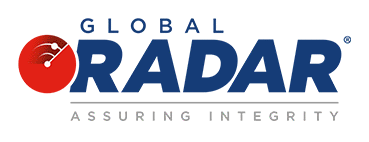After seven years of service and the uncovering of one of the largest corruption and money laundering scandals in world history, Brazil’s lauded “Car Wash” anti-corruption unit was officially disbanded last Monday. Having cracked down on intricate networks of political and corporate corruption and racketeering across the continent as part of a greater scheme that ultimately dragged in politicians and companies from countries around the globe, the Brazilian government has decided to divide the task force while having several of its prosecutors continue their work in other departments, including the federal prosecutors office (MPF). Still, the legacy of the operation will live on in international lore for years to come, setting a sterling precedent for ongoing regional anti-corruption efforts in various circles of the globe with a reach likely to be felt for decades to come.
Who could have guessed that an industry based on cleaning could turn out to be so dirty? In what began as something of a ho-hum money-laundering investigation into the misuse of local small businesses (i.e. gas stations and car washes) by black market money dealers in the country’s capital of Brasilia in 2014, the criminal probe now known globally as “Operation Car Wash” ultimately culminated in the largest anti-corruption campaign in the history of South America and much of Latin America. Allegations arose that executives at Brazil’s state-controlled oil company Petroleo Brasileiro SA (aka Petrobas) had been accepting lucrative bribes from constructions firms in exchange for awarding heavily-inflated contracts of the hundred-million dollar variety. The multinational scheme saw dozens of companies admit to paying hefty bribes to politicians and government officials in exchange for access to lucrative contracts with Petrobas for “office construction, drilling rigs, refineries and exploration vessels”6 in addition to securing other public works deals.
Of course, the private sector was found to have had direct involvement in this illicit activity, with executives in major corporations also receiving their fair share of cash for helping to push similar deals through. One of the big names entangled in the web of corruption was Marcelo Odebrecht, CEO of Brazilian conglomerate Odebrecht, arguably the most prominent and profitable engineering firm operating in South, Central and Latin America. In total, it is estimated that Odebrecht paid anywhere from $700 million to upwards of $2 billion in bribes to facilitate the scheme. In late 2016, Odebrecht and Brazilian petrochemical company Braskem S.A. pleaded guilty and agreed to pay a combined total penalty of at least $3.5 billion to resolve charges with authorities in the United States, Brazil and Switzerland arising out of their schemes to pay hundreds of millions of dollars in bribes to government officials around the world.3 Nearly $3 billion of the aforementioned total went to the United States as part of the final settlement, marking the largest such payout ever made to the U.S. by a foreign entity.
As if the illicit kickbacks among private and public firms weren’t scandalous enough, the Car Wash investigation also unveiled the involvement of the country’s prime political party at the time – the Workers’ Party – as well as politicians representing the Brazilian Democratic Movement Party and Progressive Party, respectively, in the greater scandal. Claims quickly emerged that the Workers’ Party led by then-President Luiz Inacio Lula da Silva had siphoned off illicit funds to help buy votes and support a number of political campaigns that helped keep prominent officeholders in power and allow for the ploy to continue unimpeded. Lula was ultimately charged by Brazilian prosecutors for being one of the key players behind the kickback scheme that caused an estimated 42 billion reais ($12.6 billion) in losses to Petrobras shareholders and taxpayers. Despite vehemently denying the legitimacy of the claims, Lula was sentenced to 12 years in prison for his role in the ploy. All told, 25 members of political parties operating at the federal, state, and municipal levels were implicated in the corruption mill.
Though the Car Wash Squad may be disbanded, their work in pulling Brazil out from the depths of systemic corruption will most certainly be remembered. Altogether, the Car Wash Squad’s investigative work led to a total of 4.3 billion reais ($803 million) in ill-gotten gains being returned to the Brazilian state during its roughly seven years of operation.1 Their efforts also led to charges being brought against a total of 295 individuals from a multitude of countries (leading to 278 convictions) with total criminal sentencing durations amounting to over 1500 years collectively, demonstrating that even those in premier positions of power are not above the law.
Weekly Roundup
United Nations Accuses Yemen of Money Laundering; Mass Denial Ensues
The United Nations (UN) recently accused the government of the Middle Eastern country of Yemen of money laundering and corruption, with the Houthi group benefiting from nearly $2 billion in state revenue in 2019 to help propel their destabilizing war efforts. Prior to the Biden administration coming to power on January 20th, former U.S. Secretary of State Mike Pompeo made an announcement designating the Houthi movement as a foreign terrorist organization. The announcement also included sanctions against the movement and three of its leaders. While the UN initially warned that the decision made by the United States to designate the group would undermine peace talks and further exacerbate the ongoing humanitarian crisis in Yemen, the intergovernmental organization now notes that the ongoing corruption in the country has been the driving force behind the inadequate access to food and basic supplies needed for daily life. The annual report to the UN Security Council on the implementation of international sanctions on Yemen notes that Saudi Arabia deposited $2 billion with the Central Bank of Yemen in January 2018 under a development program intended for use in improving food security for the country’s citizens. Instead, the investigation revealed “Yemen’s Central Bank broke its foreign exchange rules, manipulated the foreign exchange market and ‘laundered a substantial part of the Saudi deposit in a sophisticated money-laundering scheme’ that saw traders receive a $423 million windfall.”2 The bank has maintained that all of its past operations were licit and compliant with international banking and trading standards, adding that the UN’s accusations were based on false information.
With respect to terrorism financing, the UN report notes that the Houthis collected taxes and other revenues in areas they controlled, diverting upwards of $1.8 billion and using these funds to support the group and accrue resources to aid their war efforts. The Houthi group has also been accused of being directly involved in collecting weapons/weapon components from Iran, a direct violation of an ongoing UN arms embargo.2
Fearing Sanctions, Philippines Set To Tighten AML Regulations
On January 29th, Philippine President Rodrigo Duterte signed a law that will effectively strengthen the Southeast Asian country’s anti-money laundering and counter terrorism financing regulations to bring them in line with recommendations made by the Financial Action Task Force (FATF). As of their latest progress report, the FATF — an intergovernmental body working to combat money laundering and other notable financial crimes — notes that while the Philippines has made sufficient progress in shoring up its deficiencies with respect to compliance with a number of recommendations made by the organization, the nation was at risk of returning to their “grey list” if the country’s leadership failed to strengthen its AML laws before a February 1st, 2021 deadline. Countries found on the FATF’s grey list represent a significantly higher risk of falling victim to (if not stimulating) financial crime, but have formally committed to working with the watchdog to develop a plan of action to address their current deficiencies — unlike their counterparts found on the FATF’s “blacklist.” Being found on said lists often has a considerable impact on foreign investment and places a strain on receipt of economic assistance as well as follow-through on trade agreements given the potential sanctions implications that are subsequently set in motion following these additions.
Reuters reports that the new law passed by the Filipino government “ expands the powers of the Anti-Money Laundering Council (AMLC), allowing it to impose targeted financial sanctions against the proliferation of weapons of mass destruction and its financing,” while also “allowing the council to apply for court summons, and search and seizure warrants.”4 Reports have also indicated that the AMLC will also be able to scrutinize the financial transactions of online casino operators based in the Philippines, as well as real-estate firms and brokers engaging in single cash transactions worth more than 7.5 million pesos ($160,000).4The new measures are expected to allow the Philippines to avoid any retaliatory actions from the FATF in the immediate future, though final approval of the actions are still pending.
NYC Bank Faces Fine for AML Deficiencies
New York-based financial firm Apple Bank for Savings has agreed to pay a $12.5 million civil penalty to settle the Federal Deposit Insurance Corporation’s (FDIC) claims that it failed to remain compliant with American AML regulations in the recent past. The Wall Street Journal writes that the bank is alleged to have violated the Bank Secrecy Act (BSA) between April 2014 and September 2018, with the bank failing to comply with FDIC orders to improve its AML compliance protocols originally issued in 2015 in a timely manner. The WSJ’s article notes that the “prior consent order, from 2015, required Apple Bank to hire qualified compliance staff, conduct an anti-money-laundering risk assessment and develop a system of internal controls to ensure compliance with the Bank Secrecy Act, among other measures.”5 The financial institution has maintained that it has invested a significant amount of time and resources into meeting the FDIC’s proposed recommendations to enhance their compliance program to comply with both statutory and regulatory requirements. Despite their remediation efforts, the FDIC pushed forward with the financial penalty against the firm secondary to the degree of violations and the bank’s history of violating regulatory requirements.5
Citations
- Brito, Ricardo, and Gram Slattery. “After Seven Years, Brazil Shuts down Car Wash Anti-Corruption Squad.” Reuters, Thomson Reuters, 4 Feb. 2021.
- Nichols, Michelle. “Exclusive: U.N. Report Accuses Yemen Government of Money-Laundering, Houthis of Taking State Revenue.” Reuters, Thomson Reuters, 26 Jan. 2021.
- “Odebrecht and Braskem Plead Guilty and Agree to Pay at Least $3.5 Billion in Global Penalties to Resolve Largest Foreign Bribery Case in History.” The United States Department of Justice, 3 Oct. 2017.
- “Philippines’ Duterte Tightens Anti-Money Laundering Rules to Avoid `Grey List’.” Reuters, Thomson Reuters, 30 Jan. 2021.
- Tokar, Dylan. “New York Bank Fined For Anti-Money-Laundering Law Failures.” The Wall Street Journal, Dow Jones & Company, 1 Feb. 2021.
- Watts, Jonathan. “Operation Car Wash: The Biggest Corruption Scandal Ever?” The Guardian, Guardian News and Media, 1 June 2017.

